Did you know that leopard geckos have an average lifespan of 10-20 years in captivity? That’s right, these unique reptiles can be your companion for over a decade! But here’s the surprising part – some leopard geckos can live even longer, surpassing the 20-year mark. With the right care and attention, these fascinating creatures can bring joy and wonder to your life for many years to come.
So, if you’re considering bringing a leopard gecko into your home or already have one, it’s crucial to understand the various factors that can impact their lifespan. From genetics to environment and proper care, every aspect plays a significant role in ensuring these beautiful creatures live a healthy and fulfilling life.
Core Insights Leopard Gecko Lifespan:
Factors Affecting Leopard Gecko Lifespan
Several factors influence the lifespan of leopard geckos, ensuring they live a long and healthy life. Let’s explore the key factors that affect the lifespan of these fascinating reptiles:
1. Genetics
The genetic makeup of a leopard gecko plays a significant role in determining its lifespan. Just like humans, some geckos may inherit certain traits or health conditions that can impact their longevity. It’s important to be aware of their genetic background when adopting or purchasing a leopard gecko.
2. Species Differences
Leopard gecko lifespan can vary between different species. While most leopard geckos have an average lifespan of 10-20 years, certain species may have shorter or longer lifespans. Knowing the specific species and understanding its unique characteristics can help you provide the best care for your gecko.

3. Environmental Conditions
The environment in which a leopard gecko lives can greatly influence its lifespan. Factors such as temperature and humidity levels are crucial for their overall health and well-being. Leopard geckos are ectothermic creatures, meaning they rely on external heat sources to regulate their body temperature. Maintaining optimal temperature and humidity levels in their habitat is essential for their survival.
4. Habitat Setup
The overall setup and quality of the gecko’s habitat can impact its lifespan. Providing a suitable enclosure with adequate space, hiding spots, and enrichment activities promotes a stress-free and stimulating environment for your gecko. A comfortable and well-designed habitat encourages natural behaviors and contributes to their overall well-being.
5. Nutrition and Diet
Proper nutrition and a well-balanced diet are crucial for the longevity of leopard geckos. These reptiles are insectivores, requiring a diet primarily consisting of live insects. Offering a variety of gut-loaded and properly supplemented insects ensures that your gecko receives the necessary vitamins and minerals to thrive.
[content-egg module=Amazon template=item_simple]Life Stages of Leopard Geckos
Leopard geckos go through distinct life stages, including hatchling, juvenile, and adulthood. Each stage comes with its own care requirements, and understanding these stages is essential for providing the best possible environment for your gecko.
During the hatchling stage, leopard geckos are fragile and require careful attention. They are about 3-4 inches long and have vibrant colors. Hatchlings typically eat small insects and require a smaller enclosure to prevent any difficulties in finding food.
The juvenile stage is a period of growth and development. Leopard geckos in this stage are around 4-6 inches long and have a more defined pattern. Their appetite increases, and they require a larger enclosure to accommodate their size. It is important to provide a varied diet to meet their nutritional needs and promote healthy growth.
As leopard geckos reach adulthood, they reach their full size and maturity. Adult geckos can grow up to 8-10 inches in length and have a more subdued pattern. During this stage, they need a suitable habitat that includes a spacious enclosure with hiding spots, proper lighting, and temperature gradients.
Leopard geckos generally live for 6-10 years in captivity, but with proper care, they can exceed this range. Providing an optimal environment, meeting their dietary needs, and ensuring their overall well-being are all essential in maximizing their lifespan.
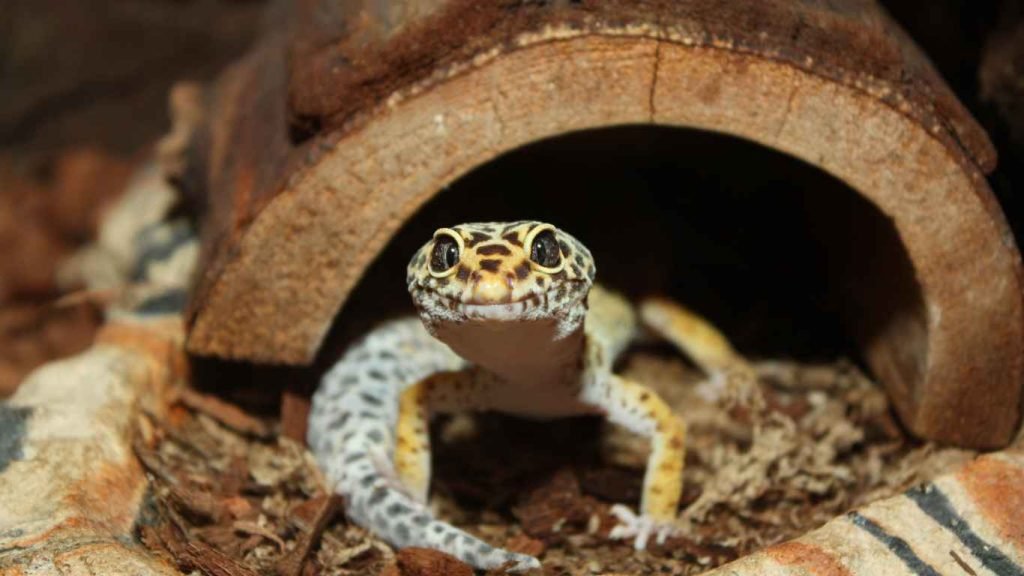
Creating the Ideal Habitat for Leopard Geckos
Providing an ideal habitat is crucial for the longevity of your leopard gecko. By creating a suitable enclosure and mimicking their natural habitat as closely as possible, you can ensure their well-being and extend their lifespan.
Temperature and Lighting
Leopard geckos require a specific temperature range to thrive. The ideal temperature within the enclosure should be 88°F (31°C) during the day and drop to around 75°F (24°C) at night. Proper heating elements such as under-tank heaters or heat lamps should be used to maintain these temperature levels.
Additionally, providing the right lighting is essential for their well-being. Leopard geckos require a day and night cycle to mimic their natural environment. Using a UVB bulb or providing natural sunlight exposure can help meet their lighting needs.
Secure and Clean Environment
Creating a secure and clean environment is important for the overall health of your leopard gecko. Ensure the enclosure has a secure lid to prevent any escapes or potential injuries. Regularly clean the enclosure, removing any waste or uneaten food to maintain proper hygiene.
It’s also important to provide adequate hiding spots within the enclosure. Leopard geckos are nocturnal and require places to retreat and feel secure. Adding caves or artificial hiding spots will mimic their natural behavior and reduce stress.
Substrate Choices
The substrate you choose for the habitat is another important consideration. Avoid using loose substrates such as sand or coconut fiber, as these can be ingested by the gecko and potentially lead to impaction. Safer options include reptile carpet, paper towels, or tile, which provide a cleaner and easily maintainable environment.
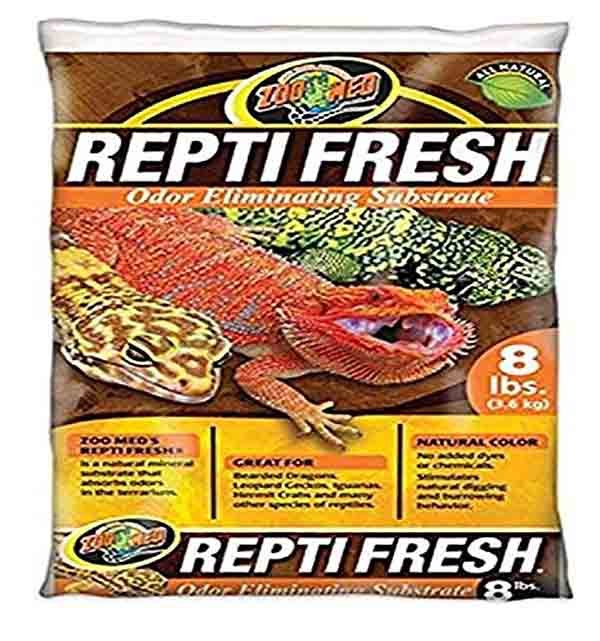
Zoo Med ReptiFresh Odor Eliminating Substrate
It’s crucial to remember that proper environmental conditions and a secure habitat are key to ensuring the longevity and well-being of your leopard gecko.
| Key Aspects of an Ideal Leopard Gecko Habitat | Description |
|---|---|
| Temperature | Maintain a temperature range of 88°F (31°C) during the day and 75°F (24°C) at night using heating elements. |
| Lighting | Provide a UVB bulb or natural sunlight exposure to replicate their day and night cycle. |
| Hiding spots | Add caves or artificial hiding spots for them to feel secure and exhibit their natural behaviors. |
| Substrate | Avoid loose substrates like sand and opt for reptile carpet, paper towels, or tile for a cleaner environment. |
Nutritional Requirements for Leopard Geckos
Proper nutrition plays a crucial role in ensuring the longevity of your leopard gecko. To support their overall health and extend their life expectancy, it is important to provide them with a balanced and appropriate diet.
Live Insects: Leopard geckos are insectivores, and their diet primarily consists of live insects. Some suitable options include crickets, mealworms, and waxworms. These insects provide essential nutrients and proteins that are vital for your gecko’s well-being.
Gut-loading and Dusting: Insects should be gut-loaded before feeding them to your leopard gecko. This means feeding the insects a nutritious diet before offering them as food. Gut-loading enhances the nutritional value of the insects, ensuring your gecko receives a well-rounded meal.
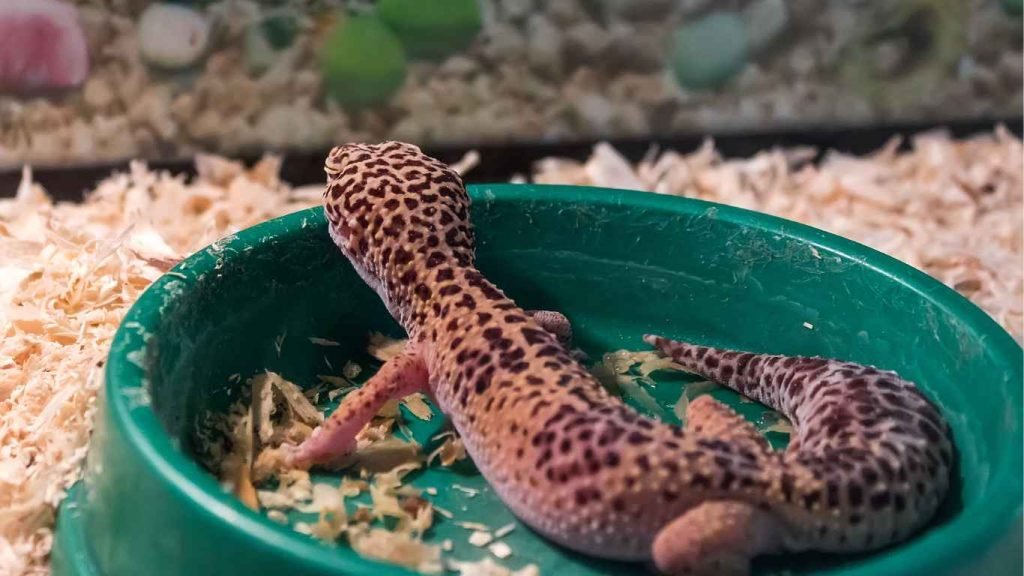
Additionally, it is important to dust the insects with calcium and vitamin supplements. This helps compensate for any potential deficiencies in their natural prey and ensures that your gecko receives all the necessary nutrients.
Feeding Schedule: Establishing a regular feeding schedule is essential for maintaining your leopard gecko’s health and promoting a longer lifespan. Depending on their age and size, leopard geckos typically require feeding every 2-3 days. However, it is important to monitor their appetite and adjust the frequency accordingly.
Common Feeding Mistakes to Avoid: To ensure the longevity of your leopard gecko, it is important to avoid common feeding mistakes. Overfeeding can lead to obesity and various health issues, while underfeeding can result in malnutrition and stunted growth. Balance and moderation are key when it comes to feeding your gecko.
Tip: Always provide fresh, clean water for your leopard gecko. Water should be available at all times, and the water dish should be shallow to prevent the risk of drowning.
By paying close attention to your leopard gecko’s nutritional needs and following these guidelines, you can provide them with a diet that supports their overall health and increases their life expectancy.
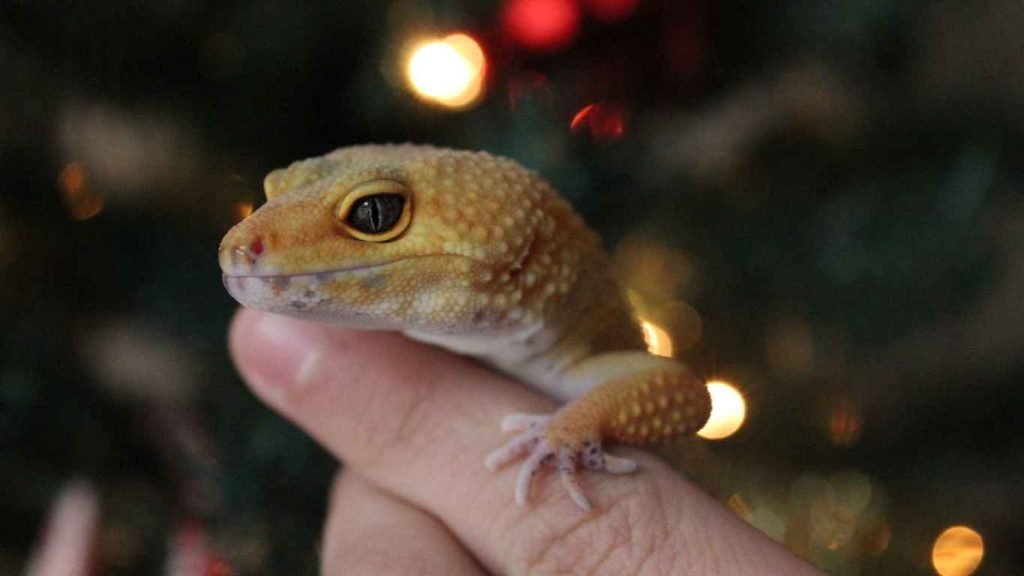
Healthcare and Regular Check-ups for Leopard Geckos
Regular veterinary check-ups and proactive healthcare measures are vital for ensuring the health and longevity of your leopard gecko. Take the necessary steps to monitor their well-being, detect any signs of illness or injury, and address any health issues promptly.
Seeking professional care when needed and following proper husbandry practices will contribute to their overall well-being and lifespan. By prioritizing their health and providing the necessary medical attention, you can help your leopard gecko live a long and fulfilling life.
Monitoring Weight and Physical Health
Regularly monitoring your leopard gecko’s weight and physical health is crucial for identifying any changes or potential health issues. Maintain a record of their weight and compare it to established healthy ranges. If you notice any drastic fluctuations or significant weight loss, consult a reptile veterinarian for further evaluation.
Additionally, be observant of their overall physical appearance. Look out for any visible signs of illness, injury, or abnormalities that may require veterinary attention. This includes examining their skin, eyes, limbs, and tail for any unusual changes or issues.
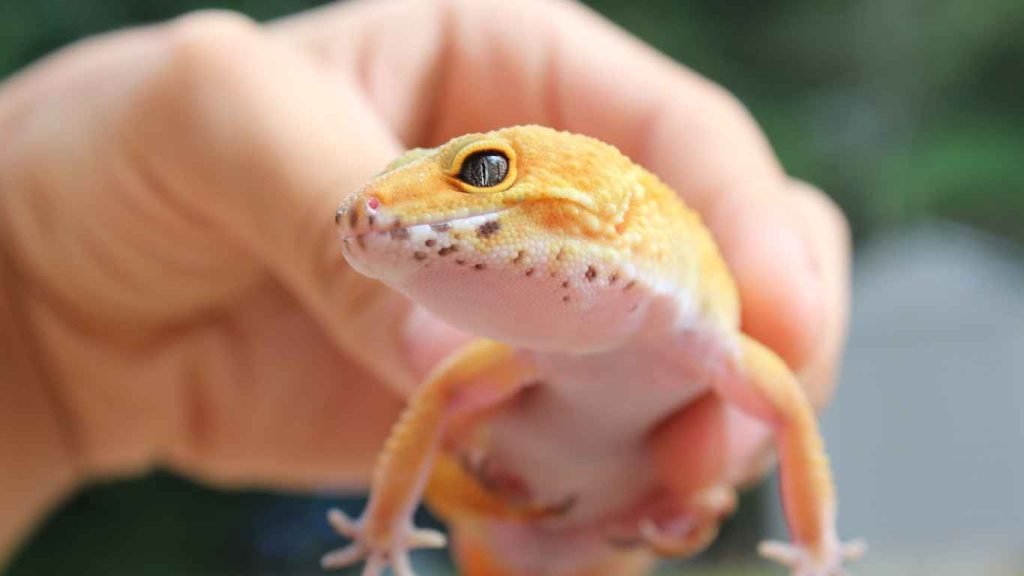
Detecting Signs of Illness or Injury
Leopard geckos are known for their resilience, but they can still fall ill or experience injuries. It’s essential to be familiar with the common signs of illness or injury, which may include:
- Loss of appetite
- Lethargy or decreased activity levels
- Abnormal bowel movements or digestive issues
- Difficulty shedding or retained skin
- Mucus in their mouth or nostrils
- Limping or favoring a particular limb
If you notice any of these symptoms or any other concerning behaviors, consult a reptile veterinarian as soon as possible. Prompt medical attention can prevent further complications and improve the chances of recovery.
Proactive Healthcare Measures
Besides regular veterinary check-ups, there are proactive steps you can take to maintain your leopard gecko’s health:
- Keep their enclosure clean and hygienic to prevent the spread of bacteria or parasites.
- Provide a well-balanced diet with proper nutrition to support their overall health.
- Maintain appropriate temperature and humidity levels in their habitat to avoid stress and respiratory issues.
- Ensure they have access to fresh, clean water at all times.
- Offer opportunities for exercise and mental stimulation, such as providing climbing structures and environmental enrichment.

Join Our GeoZoo Family
Subscribe to our Newsletter
Seeking Professional Care
If you notice any signs of illness, injury, or general concerns about your leopard gecko’s well-being, it is crucial to seek professional care. Reptile veterinarians specialize in exotic and reptile care and can provide the necessary expertise to diagnose and treat potential health issues.
Regular veterinary check-ups and prompt medical attention can significantly contribute to the longevity of your leopard gecko. By diligently caring for their health and staying proactive, you can enjoy many years of companionship with your beloved reptile.
Behavioural Indicators of Well-being in Leopard Geckos
Understanding your gecko’s behavior is crucial for ensuring their well-being and longevity. By observing their activity levels, eating habits, and social interactions, you can gain insight into their overall health. Proper interaction and handling techniques should be followed to minimize stress and ensure their comfort.
Recognizing abnormal behaviors or signs of distress is essential for prompt intervention and support. If your gecko exhibits changes in appetite, lethargy, unusual aggression, or abnormal posture, it may indicate an underlying health issue that requires attention.

Social Interactions
Leopard geckos are generally solitary animals, but they can exhibit social behaviors during certain circumstances. If you have multiple geckos in the same enclosure, observe their interactions closely. Consistent aggression or dominance behavior could be a cause for concern and may require separating them to ensure their well-being.
Activity Levels
Active and alert geckos are typically a sign of good health. They should explore their enclosure, climb on structures, and engage in natural behaviors such as hunting or basking. If your gecko appears lethargic or uninterested in their surroundings, it might indicate a health problem that needs investigation.
Eating Habits
Monitoring your gecko’s eating habits is vital for their overall health. A healthy gecko will have a consistent appetite, eagerly consuming their prey. Changes in appetite, such as a sudden decrease in food intake or refusal to eat, may indicate an underlying health issue or stress. If you notice any changes, it is important to consult a veterinarian to address the issue promptly.
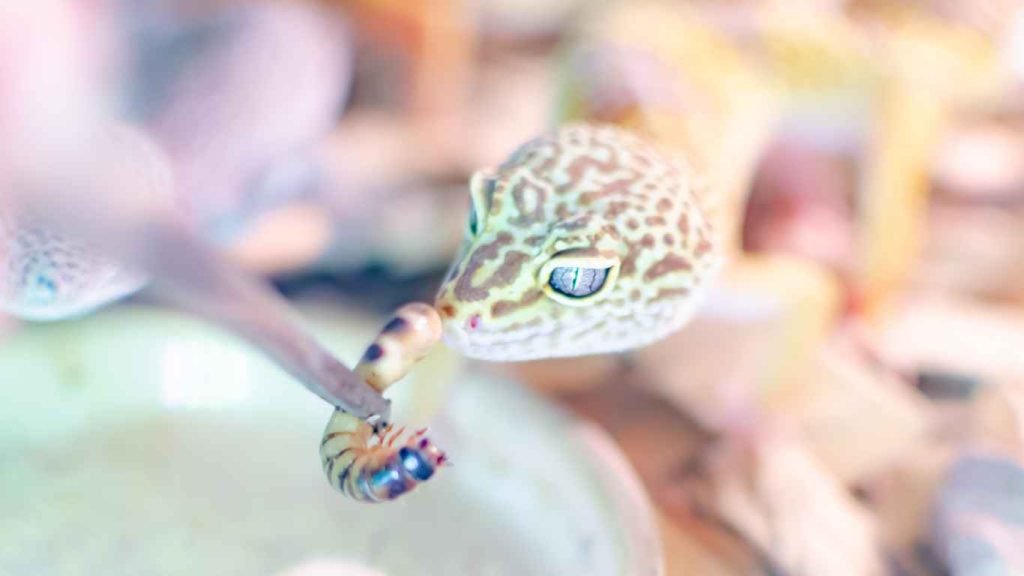
“Observing your leopard gecko’s behavior is like reading their body language. By paying attention to their activities and interactions, you can uncover any potential health concerns and provide the necessary care to support their well-being and longevity.”
Breeding and its Impact on Leopard Gecko Lifespan
When it comes to breeding leopard geckos, it’s important to consider its impact on their lifespan. Breeding can introduce reproductive stress and strain on female geckos, which can affect their overall health and longevity. To ensure the well-being of both the geckos and their offspring, responsible breeding practices should be followed.
Responsible breeding includes allowing adequate recovery time between breeding cycles. This allows female geckos to replenish their energy reserves and regain their strength before going through another reproductive cycle. Adequate recovery time helps minimize the negative impact of breeding on their lifespan.
While breeding can be an exciting endeavor, it is crucial to prioritize the health and longevity of your leopard geckos. Taking the necessary measures to ensure proper care and recovery will contribute to their overall well-being and lifespan.
Best Practices for Breeding Leopard Geckos
- Ensure that the female gecko is in good health and optimal body condition before initiating the breeding process.
- Provide a suitable nesting box and ensure it is clean and secure.
- Monitor the female gecko closely during the breeding process, paying attention to her behavior and overall well-being.
- Allow the female gecko ample time to rest and recover after laying eggs.
- Provide a nutritious diet and supplementation during the breeding period to support the gecko’s health.

The Importance of Responsible Breeding
Responsible breeding practices not only contribute to the well-being of individual geckos, but they also play a vital role in maintaining the overall genetic diversity and health of leopard gecko populations in captivity.
By prioritizing the health and longevity of leopard geckos, responsible breeders can make a positive impact on the species as a whole. It is crucial to approach breeding with care and consideration for the well-being of these fascinating reptiles.
Breeding and Leopard Gecko Lifespan Overview
| Factors | Impact on Lifespan |
|---|---|
| Reproductive stress | Can potentially shorten lifespan |
| Strain of producing eggs | Can affect overall health |
| Recovery time between breeding cycles | Crucial for the well-being of geckos |
It’s important to strike the right balance between breeding and the health of leopard geckos. By following responsible breeding practices and allowing sufficient recovery time, you can help ensure the longevity and well-being of these beautiful reptiles.
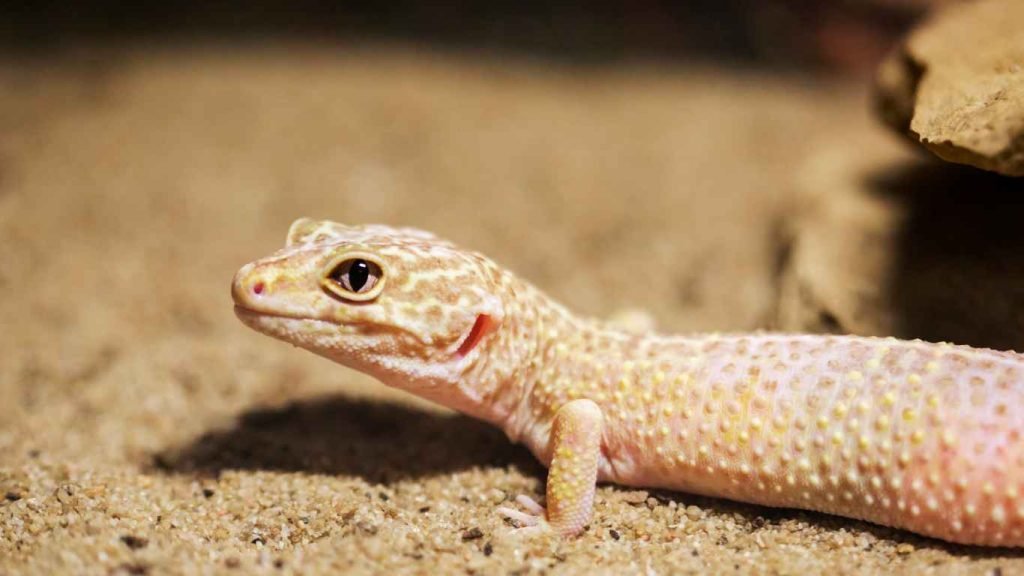
Common Myths about Leopard Gecko Lifespan
When it comes to the lifespan of leopard geckos, there are several common myths and misconceptions that can lead to improper care. It’s important to separate fact from fiction to ensure the well-being of these fascinating reptiles. By debunking these myths and understanding the true average lifespan of leopard geckos, you can provide accurate care and ensure a long and healthy life for your gecko.
Myth 1: Leopard Geckos Only Live for a Few Years
Contrary to popular belief, leopard geckos have an average lifespan of 10-20 years in captivity with some individuals living even longer. Proper care, optimal habitat conditions, and a nutritious diet contribute to their longevity. By providing the right environment and meeting their specific needs, you can help your leopard gecko thrive for many years.
Myth 2: All Leopard Geckos Have the Same Lifespan
While leopard geckos have a general average lifespan, it’s important to understand that individual geckos may vary. Genetics, health history, and environmental factors can influence their lifespan. By providing tailored care and closely monitoring their well-being, you can ensure their longevity and address any potential health issues.
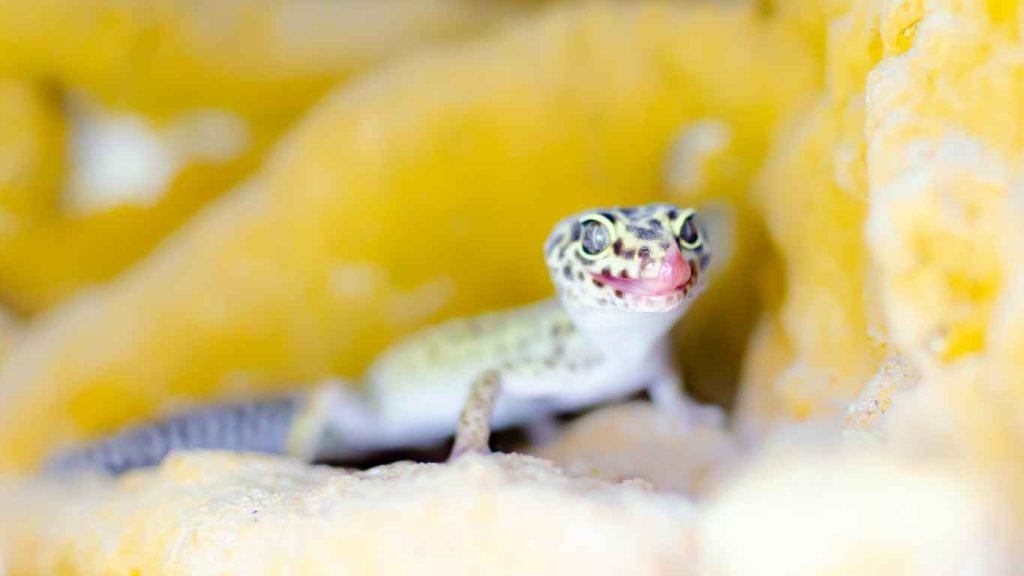
Myth 3: Leopard Geckos Don’t Require Veterinary Care
Another misconception is that leopard geckos don’t need regular veterinary check-ups. However, routine health examinations are crucial for identifying any underlying health conditions or potential risks. A qualified reptile veterinarian can provide expert guidance on proper care, offer preventive treatments, and address any health issues that may arise.
“Understanding the true average lifespan and debunking common misconceptions will help provide accurate information for responsible gecko ownership.”
To separate fact from fiction and ensure the best care for your leopard gecko, it’s important to do thorough research, consult reputable sources, and seek guidance from experienced reptile keepers. By providing accurate care based on reliable information, you can contribute to the well-being and longevity of your leopard gecko.
Stay tuned for the next section, where we will provide valuable tips for increasing the lifespan of your leopard gecko.
Tips for Increasing Leopard Gecko Lifespan
To ensure a long and healthy life for your leopard gecko, there are several tips and strategies you can implement. By providing enrichment activities, socialization, mental stimulation, and staying vigilant about any changes in their behavior or environment, you can significantly contribute to their overall longevity.
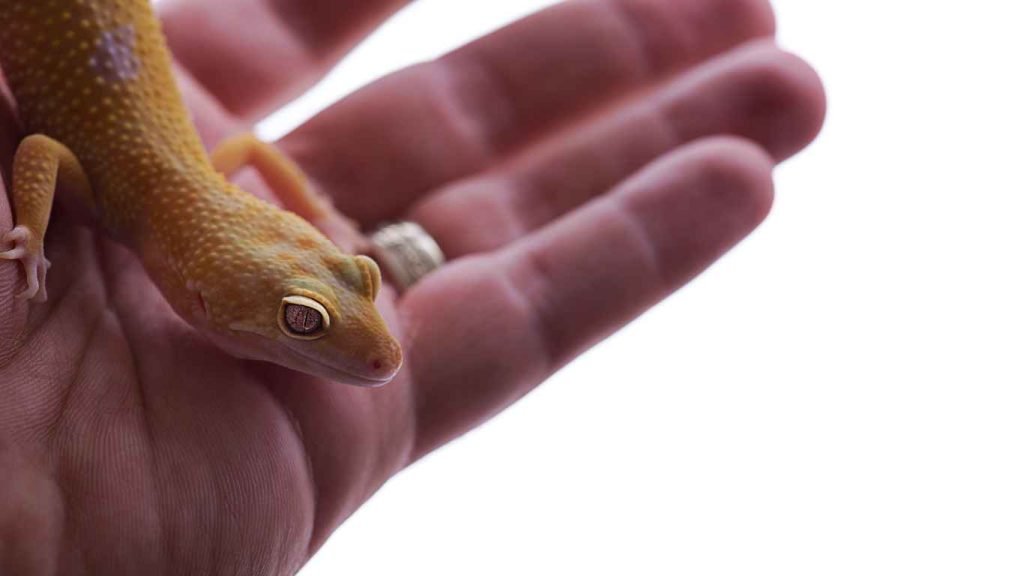
1. Enrichment Activities
Leopard geckos thrive when they have opportunities for enrichment. Create a stimulating environment by adding natural elements like branches, rocks, and foliage to their enclosure. This will encourage exploration, climbing, and hunting behaviors.
2. Socialization
Interacting with your leopard gecko regularly helps establish trust and promotes their overall well-being. Gently handle and hand-feed them to build a positive relationship. However, ensure proper handling techniques and never force them if they show signs of discomfort or stress.
3. Mental Stimulation
Leopard geckos are intelligent creatures that benefit from mental stimulation. Provide hiding spots, puzzle feeders, and toys that encourage natural behaviors, such as hunting and foraging. This stimulates their mind and prevents boredom.
4. Monitor Behavioral Changes
Regularly observe your leopard gecko’s behavior for any signs of illness or stress. Changes in appetite, lethargy, aggression, or unusual posture may indicate an underlying health issue. If you notice any abnormalities, consult a reptile veterinarian promptly.
5. Adjust Care as Needed
As your leopard gecko ages, their care requirements may change. Monitor temperature and humidity levels to ensure they remain within the appropriate range. Adjust their diet and feeding schedule to meet their evolving nutritional needs. Regularly assess their environment and make any necessary adjustments to promote their well-being.
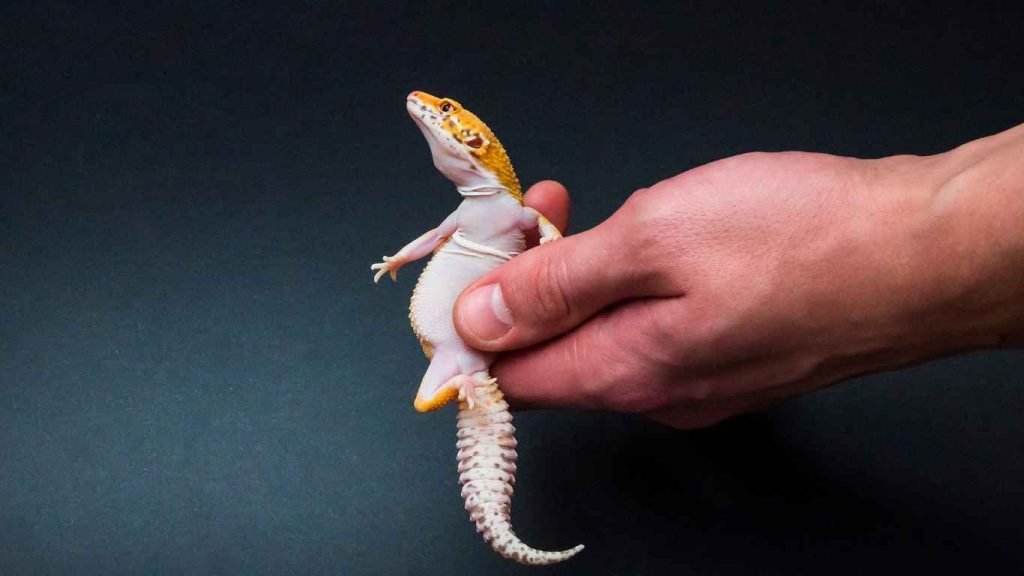
6. Veterinary Check-ups
Regular veterinary check-ups are essential for detecting any health issues early on. Schedule routine visits with a reptile veterinarian to monitor their weight, check for parasites, and address any concerns or questions you may have. Proactive healthcare measures can greatly impact your gecko’s lifespan.
| Tip | Benefits |
|---|---|
| Enrichment Activities | – Encourages natural behaviors – Reduces stress – Increases physical activity |
| Socialization | – Builds trust – Reduces anxiety – Enhances bonding |
| Mental Stimulation | – Prevents boredom – Stimulates cognitive abilities – Enriches their environment |
| Monitor Behavioral Changes | – Early detection of health issues – Prompt intervention – Improves overall well-being |
| Adjust Care as Needed | – Addresses changing needs – Optimizes environmental conditions – Supports proper nutrition |
| Veterinary Check-ups | – Preventive care – Timely treatment of health conditions – Expert guidance |
Implementing these tips and strategies will help maximize the longevity of your leopard gecko and ensure they live a happy and thriving life in your care.
Educating Leopard Gecko Owners on Lifespan and Care
Raising awareness about leopard gecko care and lifespan is crucial for the health and longevity of these reptiles. Providing educational resources, sharing accurate information, and promoting responsible ownership practices can help ensure that leopard geckos receive the care they need to live long and fulfilling lives.
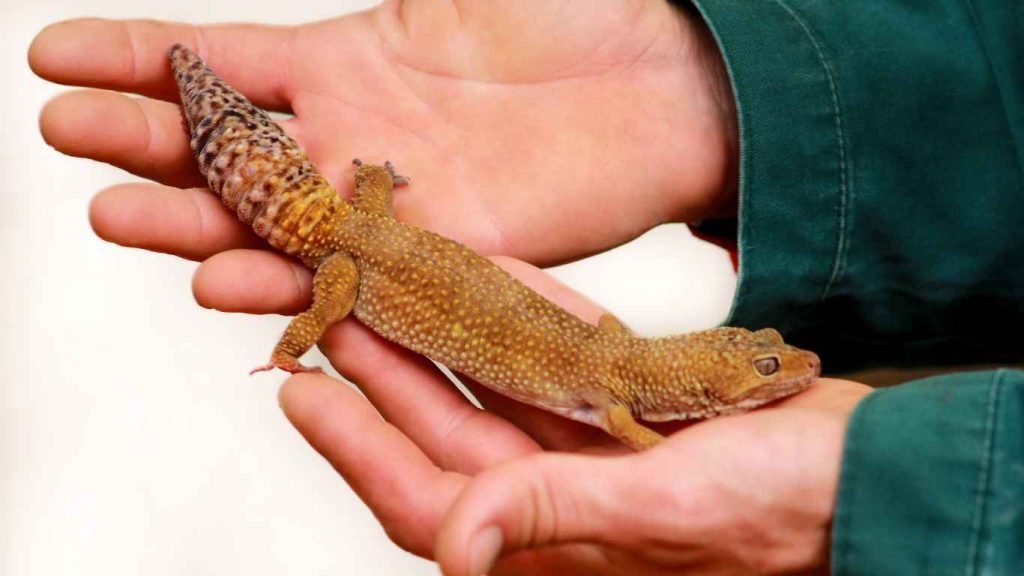
When it comes to caring for a leopard gecko, knowledge is key. By educating yourself and fellow owners, you can create a community that prioritizes the well-being of these amazing creatures. Here are some ways to educate and empower leopard gecko owners:
- Online Resources: Create and share informative articles, care guides, and videos to provide comprehensive information on leopard gecko lifespan and care. Include topics such as habitat setup, proper nutrition, health considerations, and common myths to debunk.
- Forums and Communities: Engage in online forums and social media groups dedicated to leopard gecko care. Share your experiences, answer questions, and encourage responsible practices. Collaborate with experts and enthusiasts to provide accurate and up-to-date information.
- Local Workshops and Events: Organize workshops or participate in reptile expos to interact directly with pet owners. Offer educational sessions on leopard gecko care, provide hands-on demonstrations, and address specific concerns and questions.
- Veterinary Partnerships: Collaborate with local veterinarians who specialize in reptile care. Develop partnerships to offer educational materials in their clinics or host joint seminars on leopard gecko health and longevity.
Remember: Knowledge is Power
Empowering leopard gecko owners with accurate and reliable information not only benefits the individual geckos but also contributes to the overall well-being of these fascinating creatures. By sharing insights on lifespan, proper care, and debunking common misconceptions, we can create a community that prioritizes responsible ownership and ensures the long and healthy lives of leopard geckos everywhere.
| Benefits of Educating Leopard Gecko Owners | How to Educate Leopard Gecko Owners |
|---|---|
|
|

Join Our GeoZoo Family
Subscribe to our Newsletter
Final Remarks
As a leopard gecko owner, understanding the factors that influence their lifespan is key to providing them with the best possible care. By creating an ideal habitat with proper temperature, lighting, and substrate choices, you can create a comfortable environment that mimics their natural habitat. This will contribute to their overall well-being and help extend their lifespan.
Providing proper nutrition is also crucial for leopard geckos. A diet of live insects, such as crickets and mealworms, gut-loaded and dusted with supplements, ensures they receive the necessary nutrients. Establishing a regular feeding schedule and avoiding common feeding mistakes will promote their longevity.
Regular veterinary check-ups and proactive healthcare measures are vital for keeping your leopard gecko healthy. Monitoring their weight, checking for signs of illness or injury, and addressing any health issues promptly will contribute to their overall well-being and lifespan. In addition, understanding your gecko’s behavior and providing appropriate socialization and interaction will help support their emotional well-being and minimize stress.
By implementing these care techniques and staying attentive to your leopard gecko’s needs, you can ensure they live a long and healthy life. Remember, responsible ownership and proper care are the keys to maximizing their lifespan and creating a fulfilling relationship with your leopard gecko.
FAQ
What is the average lifespan of a leopard gecko in captivity?
Leopard geckos have an average lifespan of 10-20 years in captivity, but some can live even longer.
What factors can affect the lifespan of a leopard gecko?
Factors such as genetics, environment, and proper care play a significant role in determining their lifespan.
What are the different life stages of leopard geckos?
Leopard geckos go through distinct life stages, including hatchling, juvenile, and adulthood.
How long do leopard geckos generally live in captivity?
Leopard geckos generally live for 6-10 years in captivity, but with proper care, they can exceed this range.
How can I create the ideal habitat for my leopard gecko?
Providing a suitable enclosure with proper temperature and lighting, a secure and clean environment, and the right substrate choices is crucial.
What should I feed my leopard gecko for a healthy lifespan?
Leopard geckos require a diet of live insects such as crickets, mealworms, and waxworms. The insects should be gut-loaded and dusted with calcium and vitamin supplements.
How important are regular veterinary check-ups for leopard geckos?
Regular veterinary check-ups and proactive healthcare measures are vital for ensuring the health and longevity of leopard geckos.
What are some behavioral indicators of well-being in leopard geckos?
Observing their activity levels, eating habits, and social interactions can help identify signs of well-being or potential health issues.
Does breeding leopard geckos impact their lifespan?
Reproductive stress and the strain of producing eggs can affect the overall health and longevity of female geckos.
What are some common myths about leopard gecko lifespan?
There are common myths and misconceptions surrounding the lifespan of leopard geckos. It is important to separate fact from fiction for accurate care.
What tips can help increase the lifespan of my leopard gecko?
Providing enrichment activities, socialization, mental stimulation, and monitoring for any changes in their behavior or environment can contribute to their longevity.
How can we educate leopard gecko owners on lifespan and care?
Raising awareness, providing educational resources, and promoting responsible ownership practices are crucial for the health and longevity of leopard geckos.
What are the key factors to consider when caring for a leopard gecko?
Understanding the factors that influence leopard gecko lifespan and implementing proper care techniques are essential for responsible ownership.

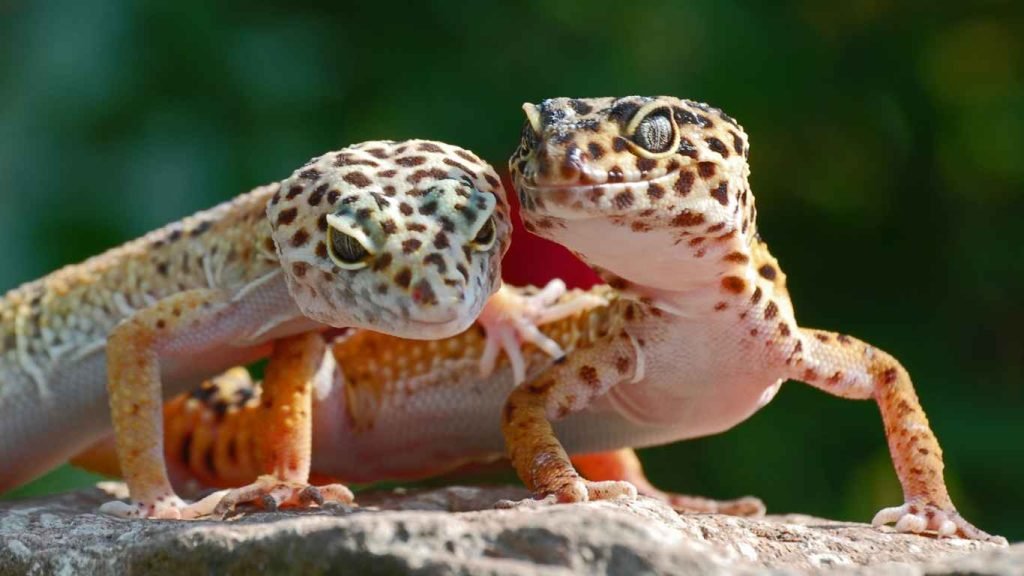
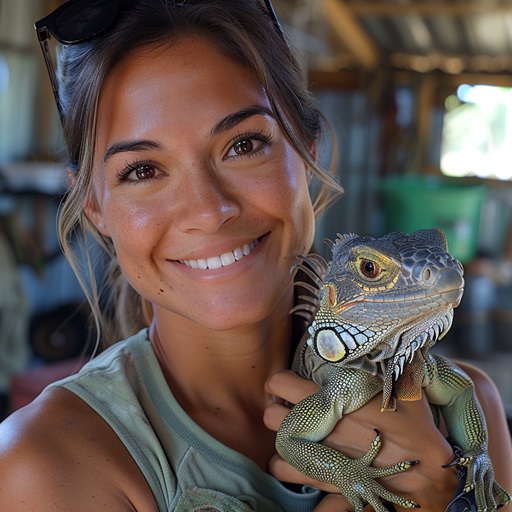
Obtain greatness, obtain clarity, obtain high — at ObtainHigh.com!